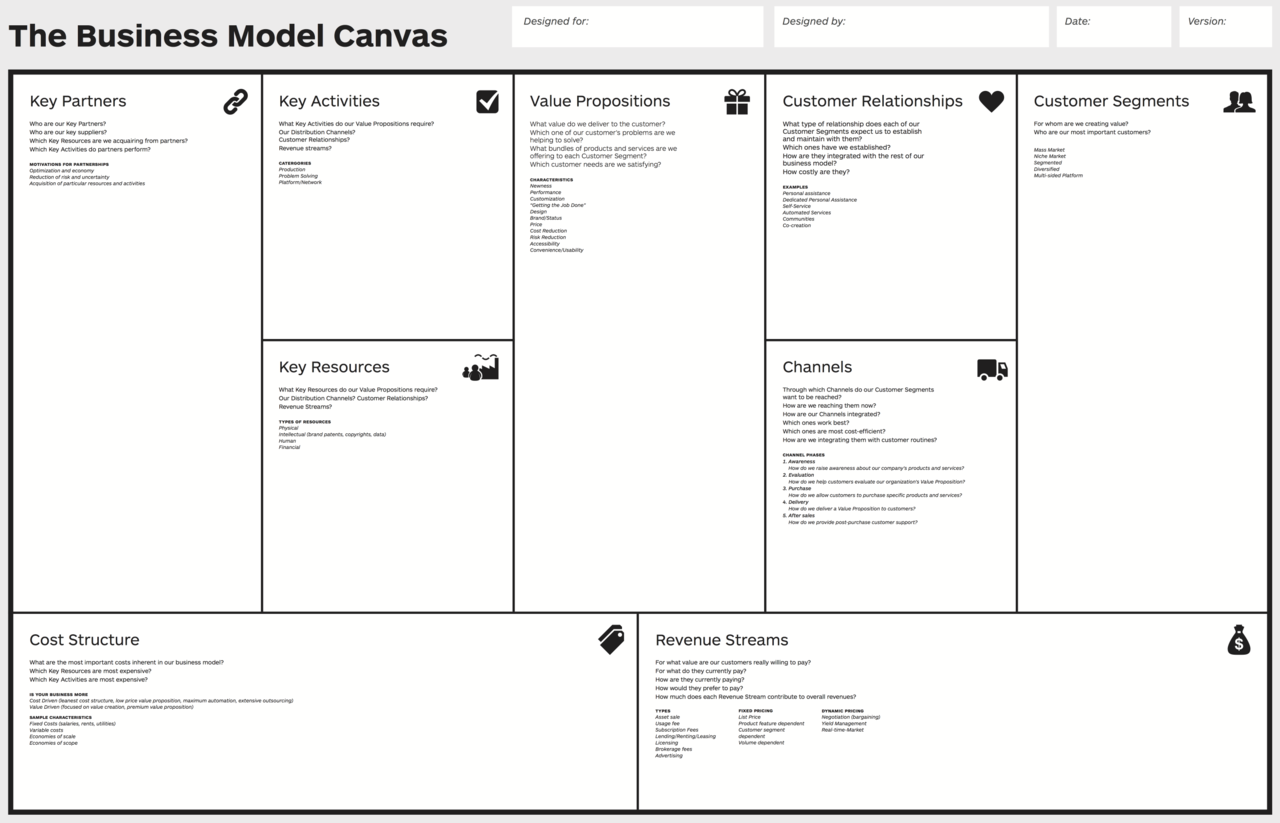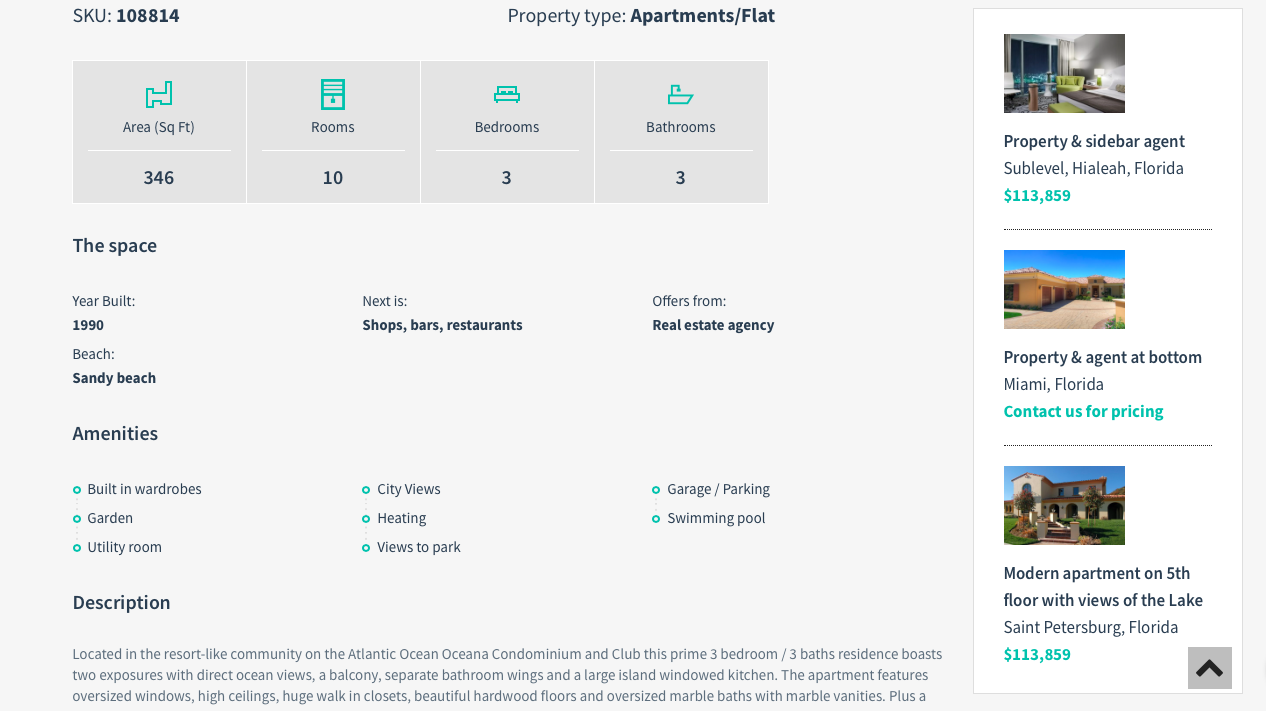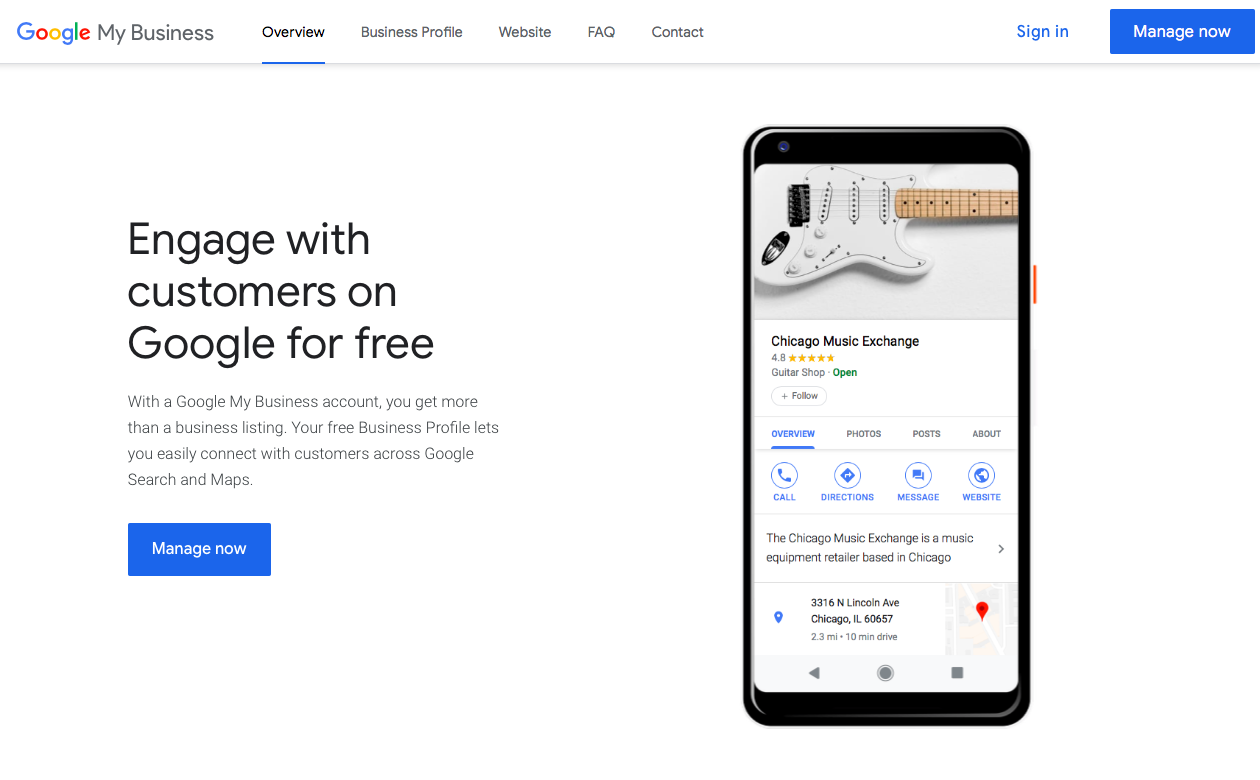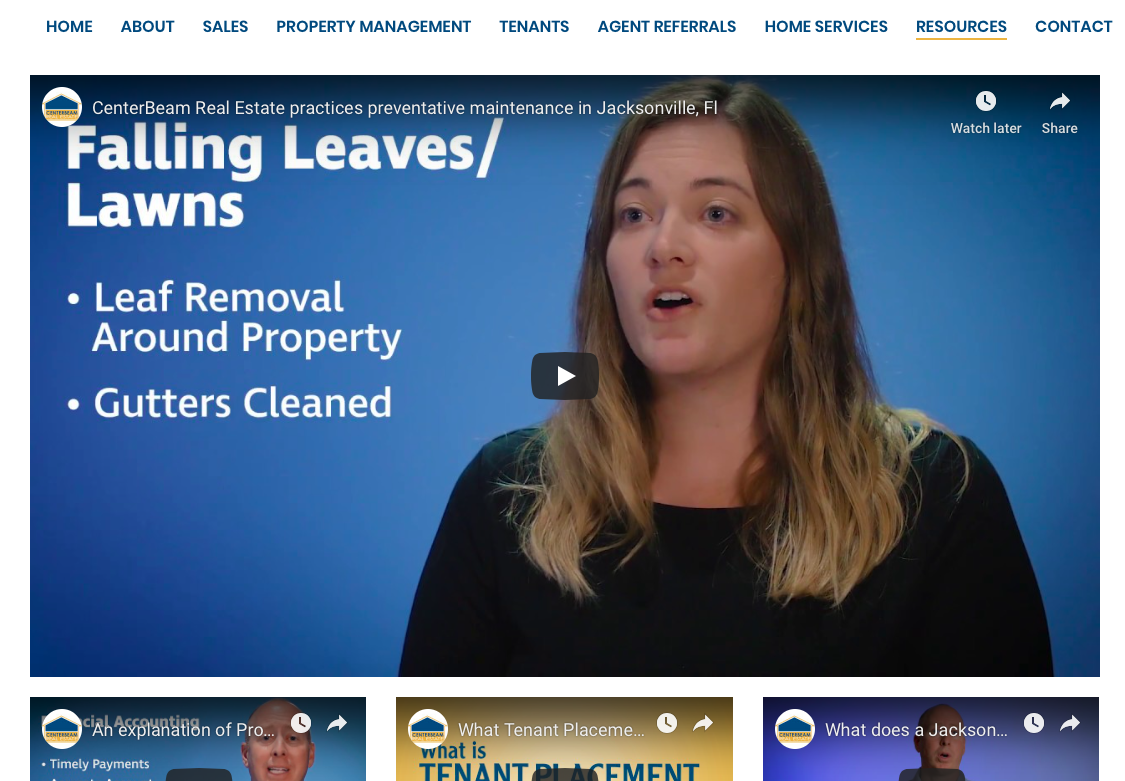A property management company rents properties to tenants on behalf of its owners. A well-run property management company utilizes marketing, software, and best practices to obtain properties and fill them with tenants. Learning the 20 tips below will help you better understand how to start a property management company and quickly make it a success.
Every property management company needs to register as a legal entity with the state in which it operates. Doing this protects your personal assets in the event that a lawsuit ever occurs against the business. IncFile is an online legal service that provides the most affordable business registration at $49 plus state fees. You can visit IncFile today to start the process of registering your property management company.
Here are 20 tips on how to start a property management company:
1. Create A Memorable Property Management Company Name
Your company name is often the first thing potential owners, tenants, and competitors learn about your business. You should make it memorable by creating a visual name. For example, if your business is by the ocean, you could consider naming it Wave Property Management and making your logo a wave. This combination is more memorable than a non-visual and abstract word like using “reliable” in Reliable Property management.
Additionally, if you’re going to be the face of the business, you could name it after yourself. When a potential property owner or referral partner sees your business name, they will be reminded of you, which is a visual cue. For search engine optimization (strategies to help your website rank higher in Google) reasons, it’s best to include the phrase “property management” in your company name. This helps Google immediately recognize the service your business provides and accurately categorizes it in the search engine.
2. Create a Modern and Visual Business Plan
Creating a business plan for your property management company helps you plan the future growth of your business. Unfortunately, traditional business plans can feel more like boring reports than planning an exciting future for your business. A more useful alternative is a business model canvas (BMC); it’s a modern and visual business plan. Instead of writing a 20-page report about your business and its industry, you can complete a basic one-page BMC. Additionally, because the BMC is visual, it’s easier to work on with your team.

A basic business model canvas can be completed in less than 30 minutes
3. Become Properly Licensed In Property Management
Before listing and renting properties, you need to be property licensed in your state. The majority of states require a real estate broker’s license, but requirements vary. This is difficult for professionals who are new to the property management industry to acquire, because typically, they need to have a real estate license for two years before applying for a real estate broker’s license.
If you don’t currently have a real estate license and don’t want to wait two years to become a broker, consider working under a real estate broker while you’re getting your own license. The challenge you may face with this option is finding a real estate broker who is willing to also broker a property management employee. The broker may not want to take on the additional work of managing another employee.
Some states such as Idaho, Kansas, and Maryland, don’t require any licensing. Other states such as Montana, Oregon, and South Carolina, offer the option to have a Property Management License instead of a broker’s license. Typically, a Property Management License requires you pass a 60-hour state approved course for a fee and an exam from a testing provider. With the application and course fee, the Property Management License may cost up to $1,000.
4. Create A Property Management Themed Website
Before creating your website, you should choose the website theme, which is the overall look, feel, and style of your website. Different types of businesses have optimized website themes based on their customers’ needs. There are certain features that property management companies should have on their website. For example, consider looking for a website theme that is designed for creating property listings. This will help potential renters easily learn about your available listings.

This property management themed website provides information about the rental interior, amenities, and a description with photos
Another website feature you need is the ability for current tenants to submit service requests and pay rent online. A typical website theme will not have these features, so you’ll need to look around.. Additionally, you should have a landing page (a webpage optimized for a specific purpose) for property owners to learn more about your management services; it’s also a good idea to display a call to action that prompts them to request a pricing quote.
Every property management website has three components: a domain name, hosting service, and a theme. The hosting service provides the online space that stores your website’s information. If you’re looking for reliable and secure hosting, consider Dreamhost. It ensures your website is responsive to your potential renters’ needs. Sign up, and get your website running today.
5. Claim and Optimize Your ‘Google My Business’
Google My Business (GMB) is a free listing that all businesses can claim if they’re servicing local customers. Many marketers are calling it the new small business homepage because the listing shows in Google before a potential customer visits your website. Even if your business is not open yet, you want to create your listing by going to GMB’s website and walking through their set up steps. Once you create your listing, add your property management company’s contact information, photos, and solicit reviews from your first customers.

Google My Business provides a short link for customers to leave you an online Google review
6. Build A Network Of Local Referral Sources
The best networking you can do to acquire more rental properties is face-to-face local networking. Referral sources such as real estate agents want to meet you before potentially recommending their clients to your business. Typically, you should plan for seven to 12 interactions with a person before gaining their trust for referrals. You can shorten this window by having persuasive and professional marketing materials on hand, and interacting with sources on social media platforms like LinkedIn, Instagram, and Facebook.
“Meet real estate agents like myself. We either have property investments or service clients that do. Believe me, it is hard to find a property management company that will take care of our assets as we would. Convince us your company will, and we will lead you to clients. Property investors would rather pay a little more for the peace of mind of knowing that their life’s work is in good hands.”
—Benjamin Ross, Realtor, Landlord & Inventory Specialist, My Active Agent
7. Join A Property Management Organization
Joining a property management organization will help you quickly learn about the industry. As a member of an organization like the Institute of Real Estate Management (IREM), you receive continuing education, certification opportunities, industry regulation updates, and exposure to the latest technologies and tools. IREM has over 200,000 members from 570 companies. You can join IREM as an associate member for $110 a year.
8. Earn A Property Management Certification
Property management certifications give you credibility when pitching to property owners and local referral sources. Additionally, the classes involved with a certification may provide you with new knowledge about the property management industry. Many certifications require a certain number of rentals units and multiple years of experience. A certification you can earn as a new property manager is the Certified Manager Of Community Associations (CMCA).
Once you earn a broker’s license and have managed properties for at least three years, you can earn the Certified Property Manager (CPM) designation. It’s considered the most reputable and most well-known property management certification.
9. Advertise On A Website For Leads
If you’re having trouble finding tenants for your properties you can advertise on a website rental directory. This will place your listing in front of renters who are actively searching for properties. Trulia, Zillow, and rent.com are websites that provide advertising opportunities. Typically, it is free to list your property on the directory website. However, you have to pay a monthly fee to get your listing toward the top of the rental search.
10. Thoroughly Screen Tenants With Background Check Software
Before renting out a property, you should do a thorough background check on all potential tenants. Some property managers will skip this step because it costs money to conduct a background check. This can be a problem though because an irresponsible tenant may cause you to lose the property.
Typically, a comprehensive background check from MyRental.com costs about $29.99. The background check includes services like eviction history, credit report check, terrorist alert, previous address history, an overall tenant quality score.
MyRental Pricing & Features
|
Feature |
Basic $19.99 per applicant |
Premium $29.99 per applicant |
Premium Plus $34.99 per applicant |
|---|---|---|---|
|
Eviction History |
✔ |
✔ |
✔ |
|
Previous Address History |
✔ |
✔ |
✔ |
|
Terrorist Alert |
✔ |
✔ |
✔ |
|
Multi-State Criminal |
✔ |
✔ |
✔ |
|
Multi-State Sex Offender |
✔ |
✔ |
✔ |
|
Credit Report |
✔ |
✔ |
|
|
Renter Pay Option |
✔ |
✔ |
|
|
Tenant Score |
✔ |
✔ |
|
|
Compare Score by Location |
✔ |
||
|
Landlord Acceptance Rate |
✔ |
11. Take Professional Quality Photos Of New Rentals
Many property managers upload low quality photos of their rental properties. They take photos on their phone or with a camera that doesn’t have a large flash or wide-angle lens. While low quality photos may save you money, they make your property look unappealing to potential tenants. Additionally, taking high quality photos makes property owners feel good about their property’s appearance online and the effort you’re making to rent their property.
Regarding quality photos, we recommend that you either invest in a DSLR camera with a wide-angle lens and enhanced flash (costs around $800), or develop a relationship with a semi-professional photographer who has the equipment and experience to take high quality photos at an affordable price.
12. Market Each Property To A Target Customer
Different types of properties and locations will attract different types of renters. Certain neighborhoods will attract families, whereas others may attract young professionals. Additionally, features that renters find appealing in short-term rentals will be different from those people want in long-term rentals like proximity to good schools. This is why you need to plan a unique marketing strategy for every rental property you’re paid to manage.
“Short-term rentals often make more money, but their demand is usually concentrated in a smaller area. Even for long-term rentals, young professionals look for different features than established families. By targeting a specific property type or demographic you see better ROI from advertising and renovations, build a more valuable brand, and operate even better as experience adds up. Picking a clear customer and property segment helps ensure your success while avoiding a headache early on.”
—Jordan Locke, Principal Consultant & Founder, RevPARTY
13. Use Video To Connect With Property Owners
Video is one of the best ways to connect with property owners searching for a property management company online. Making a video or multiple videos featuring you and your property managers go a long way to building trust with an owner before they ever call you or come into your office. When you’re making videos featuring you and your property management company, it’s important to hire a quality video production company. These videos could be on your website for several years.
Additionally, video is a great strategy for marketing your current properties. Creating a walk-through video with a voice over gives potential tenants a better feel for the property and the features it offers. This type of video doesn’t need to be of professional quality, but it does need to be decent. You can record the video on a smartphone. And if possible, buy a small tripod to hold the phone (camera) while you show off the property. The tripod will hold the camera steady, making the video easier to watch.

CenterBeam Realty uses video to introduce property owners to their property managers and show their expertise
14. Set Up A Lean Property Management Office
When starting a property management business, your overhead may be your most expensive cost. If you’re trying to open your company on a budget, consider opening your business in a shared co-working space for a fraction of the cost of a stand-alone office. WeWork, a national co-working company, rents single offices starting at $610 a month.
You may also be able to rent out space in a local real estate company, which would help you do more than just save money. Working in a real estate company is a great way to network with real estate agents for referrals.
15. Utilize A Property Management Software
There are dozens of tasks to complete when you list and rent a new property—from advertising the listing online and processing applications to setting up leases and taking payments. You don’t have to piece together all the steps with a dozen different software applications and systems. There are all-in-one software programs available that simplify these tasks and help you through the process of running a property management business.
Avail is an all-in-one affordable property management software. Use Avail to create customized leases and accept payments from tenants. You can test Avail for free with a 30-day trial. After the trial, the software costs $25 per month to manage five units.
Avail Pricing & Features
|
Feature |
Basic $0/month |
Landlord $10/month |
Landlord Plus $25/month |
|---|---|---|---|
|
Number of units |
Includes 1 unit |
Includes 1 unit |
Includes 5 units |
|
Customization |
Basic |
Full |
Full |
|
Bank payment fee |
$2 |
$0 |
$0 |
|
Per additional unit |
$6 |
$6 |
$4 |
|
FastPay |
✔ |
✔ |
|
|
Marketing Website |
✔ |
✔ |
|
|
Priority support |
✔ |
||
|
Unlimited Messages and photos |
✔ |
16. Contact Tenants & Owners Frequently
A common mistake new property managers make is not doing minor tasks. One of those tasks is contacting owners frequently and doing quarterly inspections. Often, tenants will ignore ongoing issues with the home, making them worse. For example, a semi-clogged drain can quickly turn into overflowing water. Quarterly or semi-annually inspections help avoid long-term damage to a home caused by a careless tenant.
Checking in with owners every quarter is also a best practice for a property management company. You can give them an update on their home and feedback from the recent in-person inspection you will have conducted. During this time, you can also answer any questions the owners may have. This helps improve communication and establish a solid long-term relationship.
17. Prepare For A Rental Property Service Emergency
One of the first tasks you should complete as a new property manager is to prepare for a service emergency. Your renter needs to know who to call and what phone number to dial in the event a property is damaged. If you go out of town on vacation or have a family emergency, you need to know who renters will contact.
Additionally, You should have a relationship with service companies before you need them because you don’t want to spend time vetting companies during a home emergency crisis, like a broken pipe. Generally, you’ll need relationships with plumbers, electricians, pest control, HVAC companies, home security services, carpet cleaning services, water damage restoration businesses, painters, general home cleaning services, and handymen.
“As a landlord, you will inevitably face the need for maintenance and repairs at your properties. Unless you’re a jack of all trades, it’s a good idea to establish key partnerships with contractors of all sorts—plumbers, handymen, HVAC, etc. By making these relationships, you are supporting a local business and also ensuring that you don’t have to scramble if issues arise with your units. Sometimes, these contractors may even give discounted rates in exchange for ongoing business.”
—Matthew McEwan, Vice President of Corporate Development, Medallion Capital Group
18. Set Up & Learn Accounting Software
All business owners need to have a working knowledge of accounting. As a new business owner who is starting with as few costs as possible, you may want to manage the accounting yourself. As your company grows and you add more rental properties, you may delegate the accounting to a bookkeeper or Certified Public Accountant (CPA).
If you’re managing the accounting yourself, you can use online accounting software like QuickBooks to record your income and expenses. Once you know how much money is coming into your property management business and how much is going out for expenses, you can make more informed business decisions.
19. Establish a Relationship With An Attorney
In the property management industry, you deal with legal contracts. Often, sections of those contracts need to change based on certain tenant or owner circumstances. Additionally, you may find yourself in a situation where the terms of a contract need to be enforced. Whenever you’re dealing with legal issues arising from a contract, it’s wise to have a working relationship with a business or real estate attorney to who will consult you.
20. Determine How Many Properties to Manage
A simple goal many property managers hold in the back of their mind is “I need to rent out X amount of properties to reach my financial goals.” This simple goal encourages you to keep hustling until you achieve it. The number of properties you’d like to manage depends on how big of a company you’d like to have and what’s the average rental price in your area.
Once you have your target number of properties, put it on an office wall, and share it with your staff. Celebrate every new property rented to get your staff excited about working toward the same goal.
Bottom Line
Starting a property management business can be lucrative when you have the right systems in place. Once you have about 30 properties rented out, you can make around $50,000 a year. Additionally, your business can be sold for a profit because the rental contracts are viewed as profitable assets. Having quality software, marketing, and business systems can help you reach the 30 property goal faster and create a profitable business.
Before implementing any of the above tips, you should register your property management company with the state. Typically, business registration takes anywhere from 15 to 30 days for the state to process. Registering your business protects your personal assets in the event that a lawsuit ever occurs against the business. IncFile is an online legal service that walks you step-by-step through how to register your business with your state. Start your business registration today for only $49 plus state fees.
Read More



0 تعليقات